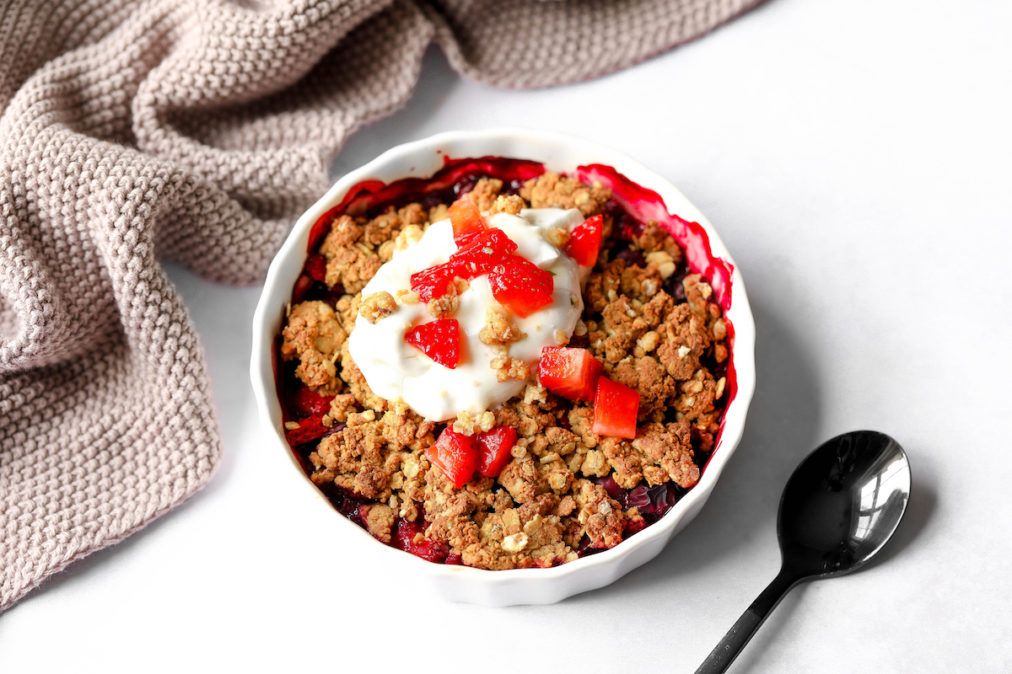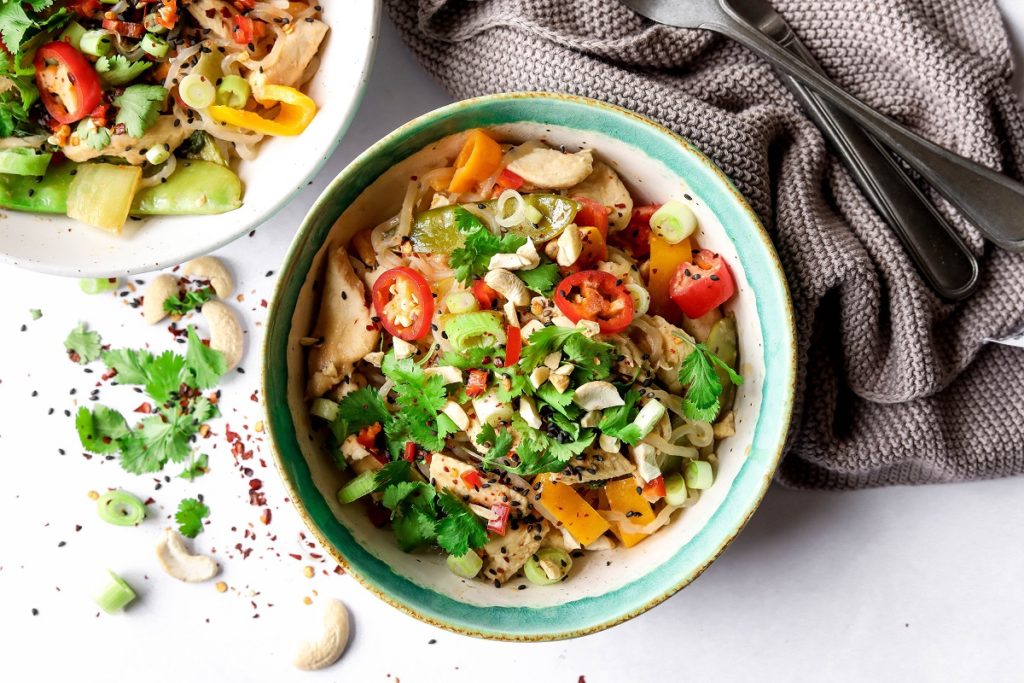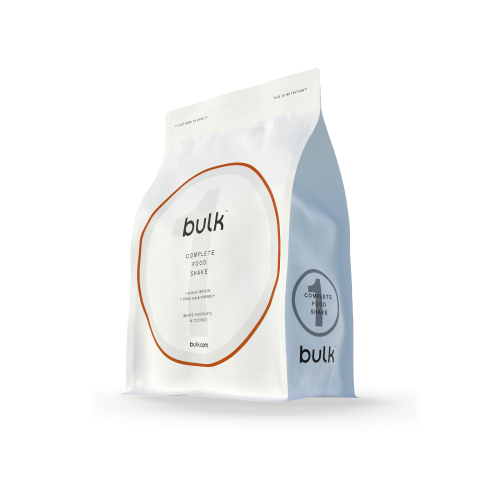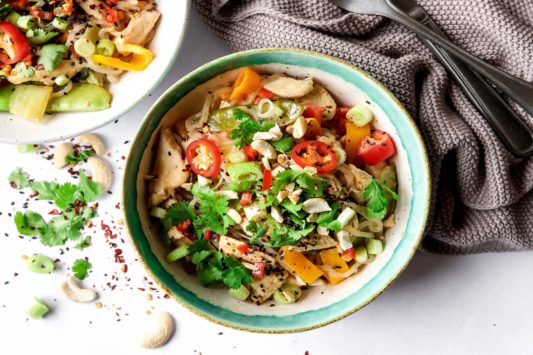As the seasons come and go, we experience changes in the weather, nature and the type of produce that grows. Seasonal eating involves eating foods which are ready to harvest at the same time of year that you eat them. Eating with the seasons is not a new concept, historically our ancestors had no choice but to eat food that was in season and available locally. Our modern lifestyles of convenience have caused us to lose touch with nature due to having year-round accessibility to the same produce. Supermarkets transport food from all over the world, so we take for granted eating avocado on toast every day of the year.
What Are the Benefits of Seasonal Eating?
Nutrient Content
Eating fresh, ripe produce optimises the concentration of certain nutrients as many nutrients in fresh produce decline over time. Seasonal food will also appear much brighter and vibrant in colour, often more plump than non-seasonal produce which can often look a little lacklustre. The variety of eating seasonal produce also provides multiple health benefits due to consuming a wider variety of different nutrients.
Taste
Seasonal food is fresher and naturally at its best so tends to be much more full of flavour. Fresh, seasonal produce which hasn’t travelled a long distance tastes better because the produce hasn’t been selectively bred for a longer shelf-life and transportability. When produce is grown and picked in season it tastes much fresher, riper, sweeter, and more delicious.
Environmental Impact
Eating seasonally reduces the energy and associated CO2 emissions required to grow and transport out of season produce. When you buy seasonal produce, you help to reduce the demand for out of season produce, which requires shipping/importing from other countries. This means less transportation, less fuels, refrigeration, and less irradiation of produce.
Supports Local Economy
Buying seasonal produce from a local greengrocer, market, farm shop or veg box scheme is a great way to support local businesses and farming.
How to Eat Seasonally
Understanding seasonality can be useful when planning meals ahead or budgeting for weekly shops. However, it can be difficult to know exactly what is in season and for how long. A simple way to keep up with what’s in season is keeping an eye on the prices of produce in supermarkets. When the prices drop, that’s usually a sign that the food is coming into season, whereas high prices are a good indicator that the food is out of season.
There are many useful resources online to establish exactly what is in season throughout the year. The Vegetarian Society has an extensive list of seasonal produce from the UK and sites such as Eat the Seasons update weekly to keep you up to speed on what’s currently in season.
It’s recommended to eat foods that are in season because it’s designed to supply your body with the nutrients it requires at the appropriate time of year. In hotter months, it’s important to provide our bodies with foods that protect us from damage from the sun (such as tomatoes and watermelon thanks to their lycopene content) and also keep us cool (foods with high water content like cucumber or oranges).
Similarly, we get certain vitamins and the warmth of the sun, so in winter months when there is less daylight, it’s important to eat foods which supplement that deficiency (such as mushrooms), as well as foods that keep us warm, such as a hearty stew with winter vegetables.
What’s in Season When?
It is not always easy to know what is in season throughout the year. Here are some examples of UK seasonal produce through the different seasons to guide you.
SPRING
- Asparagus
- Broccoli
- Beetroot
- Carrot
- Cauliflower
- Fennel
- Leeks
- Spinach
- Spring onion
- Rhubarb
SUMMER
- Apple
- Blueberries
- Celery
- Figs
- Lettuce
- Raspberries
- Peaches
- Plums
- Strawberries
- Tomatoes
AUTUMN
- Blackberries
- Cabbage
- Mushrooms
- Pears
- Peppers
- Plums
- Pumpkin
- Rocket
- Squash
- Pomegranate
WINTER
- Brussels sprouts
- Citrus fruit
- Cauliflower
- Celeriac
- Curly kale
- Parsnips
- Pears
- Potatoes
- Red cabbage
- Radicchio
Eating more seasonal foods is a great way to add variety to your diet. As if having higher nutritional content and better taste wasn’t enough, eating local produce has a reduced impact on the planet. We love that. Of course it is not always feasible to manage a seasonal diet, sometimes a quick run to the shops is all we can manage. If you are looking for support to optimise your daily nutrition, we have you covered.
Let us know how you go and for more fitness and nutrition tips, recipes and ambassador workouts, check out @bulk. Get involved in the conversation by tagging #TeamBulk and be part of our community.
ABOUT THE AUTHOR
Stephanie Yates is a nutrition coach and writer with a BSc in Food and Nutrition. She utilises her knowledge and passion for nutrition and fitness to deliver evidence-based, informative articles and guidance, helping others meet their fitness and health goals to feel their best – inside and out. You can find her on Instagram @electricmango__ for more fitness and nutrition tips.














